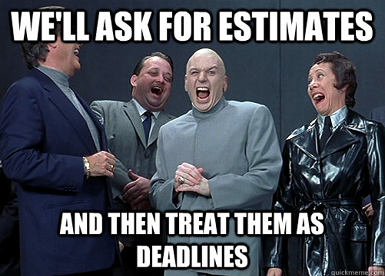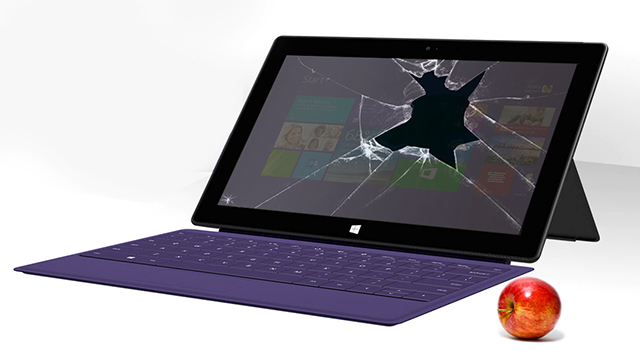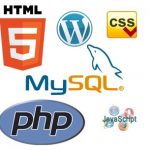 I was only out of college for three years before I started working as a consultant. It wasn’t your typical consulting work; I joined a firm that paid you a salary and they found the clients. It has been over nine years now. I have learned a lot in the industry in those nine years but the most important takeaway I have discovered is that consulting is great for building your career. This is especially true if you are at the beginning of your career. The experience you have may only be what you obtained from college, and perhaps from a summer internship. The IT industry is vast and its constantly changing so it’s up to you, in most cases, to stay on the bleeding edge.
I was only out of college for three years before I started working as a consultant. It wasn’t your typical consulting work; I joined a firm that paid you a salary and they found the clients. It has been over nine years now. I have learned a lot in the industry in those nine years but the most important takeaway I have discovered is that consulting is great for building your career. This is especially true if you are at the beginning of your career. The experience you have may only be what you obtained from college, and perhaps from a summer internship. The IT industry is vast and its constantly changing so it’s up to you, in most cases, to stay on the bleeding edge.
Consulting On The Bleeding Edge
When you are working every day at the same company where changes in technology are slow, keeping up becomes very difficult. It often becomes an extra curricular activity, outside of work. Granted there are some companies that may provide training opportunities or accounts to online tutorials (ex: Pluralsight); but there isn’t time during the day to complete them. If you are single you might have the time but if you have a spouse or a family, that free time is reallocated.
What I found most intimidating about consulting is the same thing that provides the greatest benefit. It is rare, in consulting, that you are brought in for staff augmentation. You are primarily recruited to work on a specific project, for a brief period of time and then you move on to the next client/project. Therefore you find that you are essentially “starting a new job” each time you start a new, on site, project. Some folks may find that very uncomfortable; I admit that it was probably one of my least favorite aspects of the job.
However, the fact that you change projects often is also a great way to improve your skills. Depending on the project, you may work on something that is bleeding edge. You never know where, in the plethora of technical solutions, a client might be building their product. There are some companies that want to keep up with the latest browser and mobile trends. Therefore they may be using the latest .NET or JavaScript framework (i.e. Angular, bootstrap, etc) which gives you the opportunity to work on the “latest and greatest”.
For what its worth, it isn’t necessarily a bad thing to have to work on older frameworks and solutions; keeping those skills fresh is just as crucial.
Consulting Builds Your Network
A tenant in life that I often dispense unto others is “only half of life is what you know, the other half is who you know”. As a consultant you will change clients a lot and you will get to work with a lot of different people. It isn’t just other developers/IT staff but other project managers, business analysts, line of business, etc. Whenever I started a new client, I didn’t just build rapport with the developers, but anyone I spoke to or saw on a daily basis.
If you don’t have a LinkedIn account as a consultant then you are doing it wrong. LinkedIn is your greatest tool when you are changing clients/projects a lot. I always made it a point to connect to someone via LinkedIn as I wrapped up a project. You never know when that contact might be useful for your firm or even when you need a list of references. It’s always good to build your network and consulting is a great way to do that. It is especially useful if you are moving to a new city (as was the case for me).
Pipe Bomb: After 9 Years, I am No Longer a Consultant
 According to the Bureau of Labor Statistics*, as of January 2016 the average number of years an employee stays with a company is 3-4 years (in Professional Services). The fact that I was with my company for nearly a decade is quite rare. I was at my prior job for 2 1/2 years and I vowed that I would stay at my next employer longer. It’s been 9 years! I would say I succeeded in keeping that vow. However, all good things often come to an end. I have left the consulting world and returned to full-time employment.
According to the Bureau of Labor Statistics*, as of January 2016 the average number of years an employee stays with a company is 3-4 years (in Professional Services). The fact that I was with my company for nearly a decade is quite rare. I was at my prior job for 2 1/2 years and I vowed that I would stay at my next employer longer. It’s been 9 years! I would say I succeeded in keeping that vow. However, all good things often come to an end. I have left the consulting world and returned to full-time employment.
My departure was on my own terms, which is not always the case for everyone. I just felt that it was time for a new chapter in my life. Consulting has many great benefits, especially at a professional level, as I outlined above. However, since you are rarely at the firms office it becomes difficult to form relationships with your co-workers because you rarely see them. Obviously that doesn’t mean I haven’t made a few friends over the past near-decade. Working in consulting has been instrumental to acclimate to a new city and state, not just geographically but socially as well. It’s an opportunity to make some friends with whom you will most likely share similar interests.
After nine years I have picked up a few tips for anyone who is currently a consultant or might be joining a consulting firm. I like to refer to these as:
Artifacts of wisdom:
- Build rapport outside the team – As I mentioned earlier I always tried to chat with the people on other teams or in other departments. You never know what you might learn or who you might meet; which could benefit you in the future.
- Never attempt to change the culture – Since I work in software development I prefer the adage “break the code but never break the culture”. You are there to help improve the product; you are not there to reorganize the team culture. Whatever team dynamic the client is using is obviously working for them; any attempts to “fix” it will only ostracize you.
- “When in Rome, do as the Romans do“ – You are already going to feel like an outsider because you are not included in company events/meetings, but do what you can to fit in. Take advantage of relaxed dress codes, work from home opportunities, whatever helps you feel integrated into the team. The more you ingratiate yourself the more cohesive the team will function.
- Take verbose notes; mark dates of completion – This is a CYA (Cover Your Ass) technique. In some organizations the consultants can easily be blamed when something goes wrong or something seems doomed to fail. You need to protect yourself. Always take notes and date when you started something, when you contacted someone for help and when you completed it and marked it for testing.
- Save important email – This goes hand-in-hand with the previous point. Any email that contains instructions on what you are working on, when you finish it, or any details someone might try to use against you, you should save it! Save it in triplicate if you need to! I have done this and I still have those messages saved securely on removable media and off-the-grid servers. You must be responsible for protecting yourself.
I was very fortunate to have the opportunity to work with a lot of great people. I have grown professionally and socially. Consulting is now the cornerstone on which my entire career is built. Perhaps, in about 30 years, I will go back to consulting as part of my retirement. It is also entirely possible that I may go back sooner; it all depends on what the future holds. If you are a former co-worker reading this, I wish you the best of luck, thank you for sharing your knowledge and I hope I reciprocated equally.
* Bureau of Labor Statistics Economic News Release

I could accomplish so much more if I only had minions!
 I already went into more detail about my reading challenge results from last year; suffice it to say I was 14/15 despite what Goodreads said. The reading challenge goals for this year will be a legitimate 15 books, starting with reading Ready Player One again (in anticipation for the movie). I also have quite the list of Star Wars books to read (which begins with Thrawn), the Extracted trilogy and, of course, more Dresden Files.
I already went into more detail about my reading challenge results from last year; suffice it to say I was 14/15 despite what Goodreads said. The reading challenge goals for this year will be a legitimate 15 books, starting with reading Ready Player One again (in anticipation for the movie). I also have quite the list of Star Wars books to read (which begins with Thrawn), the Extracted trilogy and, of course, more Dresden Files.![]()



 According to the Bureau of Labor Statistics*, as of January 2016 the average number of years an employee stays with a company is 3-4 years (in Professional Services). The fact that I was with my company for nearly a decade is quite rare. I was at my prior job for 2 1/2 years and I vowed that I would stay at my next employer longer. It’s been 9 years! I would say I succeeded in keeping that vow. However, all good things often come to an end. I have left the consulting world and returned to full-time employment.
According to the Bureau of Labor Statistics*, as of January 2016 the average number of years an employee stays with a company is 3-4 years (in Professional Services). The fact that I was with my company for nearly a decade is quite rare. I was at my prior job for 2 1/2 years and I vowed that I would stay at my next employer longer. It’s been 9 years! I would say I succeeded in keeping that vow. However, all good things often come to an end. I have left the consulting world and returned to full-time employment. Everyone knows the old idiom “Don’t Bite the Hand that Feeds You”. It is often used in the context of criticizing someone or some place that helps and/or pays you. It is also often used against me when I’m on one of my Microsoft tirades. Yes, the majority of my job requires me to use Microsoft tools and technology. I think my years of experience, however, gives credence that my rants are not “biting the hand that feeds you“. In my opinion, it’s “biting the hand that’s punching you in the face”. I am going to pick on Microsoft again to illustrate my point because they are the easiest target. However, to be fair, any of the big tech companies can just as easily serve the same purpose.
Everyone knows the old idiom “Don’t Bite the Hand that Feeds You”. It is often used in the context of criticizing someone or some place that helps and/or pays you. It is also often used against me when I’m on one of my Microsoft tirades. Yes, the majority of my job requires me to use Microsoft tools and technology. I think my years of experience, however, gives credence that my rants are not “biting the hand that feeds you“. In my opinion, it’s “biting the hand that’s punching you in the face”. I am going to pick on Microsoft again to illustrate my point because they are the easiest target. However, to be fair, any of the big tech companies can just as easily serve the same purpose. Microsoft has created or caused in my life. These are the times when I have had that old proverb quoted at me. After working in the industry for over a decade, I think I have earned the privilege to speak my discontent. I have been on a huge rant about Internet Explorer lately because I think that is Microsoft biggest mistake. If they had followed the same versioning model as younger browsers then perhaps IE wouldn’t be the most hated browser in the industry. The fact that I have to try to code around 8 different versions of IE but only one version of Chrome and Firefox makes me hate my life. Edge was their second biggest mistake; hello re-skinned IE. Obviously Microsoft thinks we’re all a bunch of idiots.
Microsoft has created or caused in my life. These are the times when I have had that old proverb quoted at me. After working in the industry for over a decade, I think I have earned the privilege to speak my discontent. I have been on a huge rant about Internet Explorer lately because I think that is Microsoft biggest mistake. If they had followed the same versioning model as younger browsers then perhaps IE wouldn’t be the most hated browser in the industry. The fact that I have to try to code around 8 different versions of IE but only one version of Chrome and Firefox makes me hate my life. Edge was their second biggest mistake; hello re-skinned IE. Obviously Microsoft thinks we’re all a bunch of idiots. This Tech Talk is going to be a little different than prior posts in this category. I’m not going to talk about a new gadget, technology milestone or the latest news headline. I want to know what it takes to achieve lateral career development. You can advance your career along two axes. The common route is vertical by getting a promotion, perhaps a title change and some underlings. You can also advance your career along the horizontal axis (i.e. laterally). This is most often accomplished via some form of training. When you improve a skill set or acquire new skill sets, you are a better asset.
This Tech Talk is going to be a little different than prior posts in this category. I’m not going to talk about a new gadget, technology milestone or the latest news headline. I want to know what it takes to achieve lateral career development. You can advance your career along two axes. The common route is vertical by getting a promotion, perhaps a title change and some underlings. You can also advance your career along the horizontal axis (i.e. laterally). This is most often accomplished via some form of training. When you improve a skill set or acquire new skill sets, you are a better asset.
 I know, why would I write an opinion post on something that has been around for 40 years??! Since the birth of the iPad technology has been trending away from the nostalgic old desktop PC. Tablets and laptops (and other forms of mobile devices) are becoming more popular by the hour. The truth is, I’m not really a fan of laptops. Sure I use a laptop for work because it’s easier as a consultant to have your trusty computer with you when you need it, but work is the only occasion where I feel like having one is warranted.
I know, why would I write an opinion post on something that has been around for 40 years??! Since the birth of the iPad technology has been trending away from the nostalgic old desktop PC. Tablets and laptops (and other forms of mobile devices) are becoming more popular by the hour. The truth is, I’m not really a fan of laptops. Sure I use a laptop for work because it’s easier as a consultant to have your trusty computer with you when you need it, but work is the only occasion where I feel like having one is warranted. Over the past year I have had several projects at work (I feel like a real live consultant now) and I have used a few new technologies and tools on those projects. The skills that have really come a long way are my JavaScript skills.
Over the past year I have had several projects at work (I feel like a real live consultant now) and I have used a few new technologies and tools on those projects. The skills that have really come a long way are my JavaScript skills. I could get so much more accomplished if I only had minions!
I could get so much more accomplished if I only had minions!